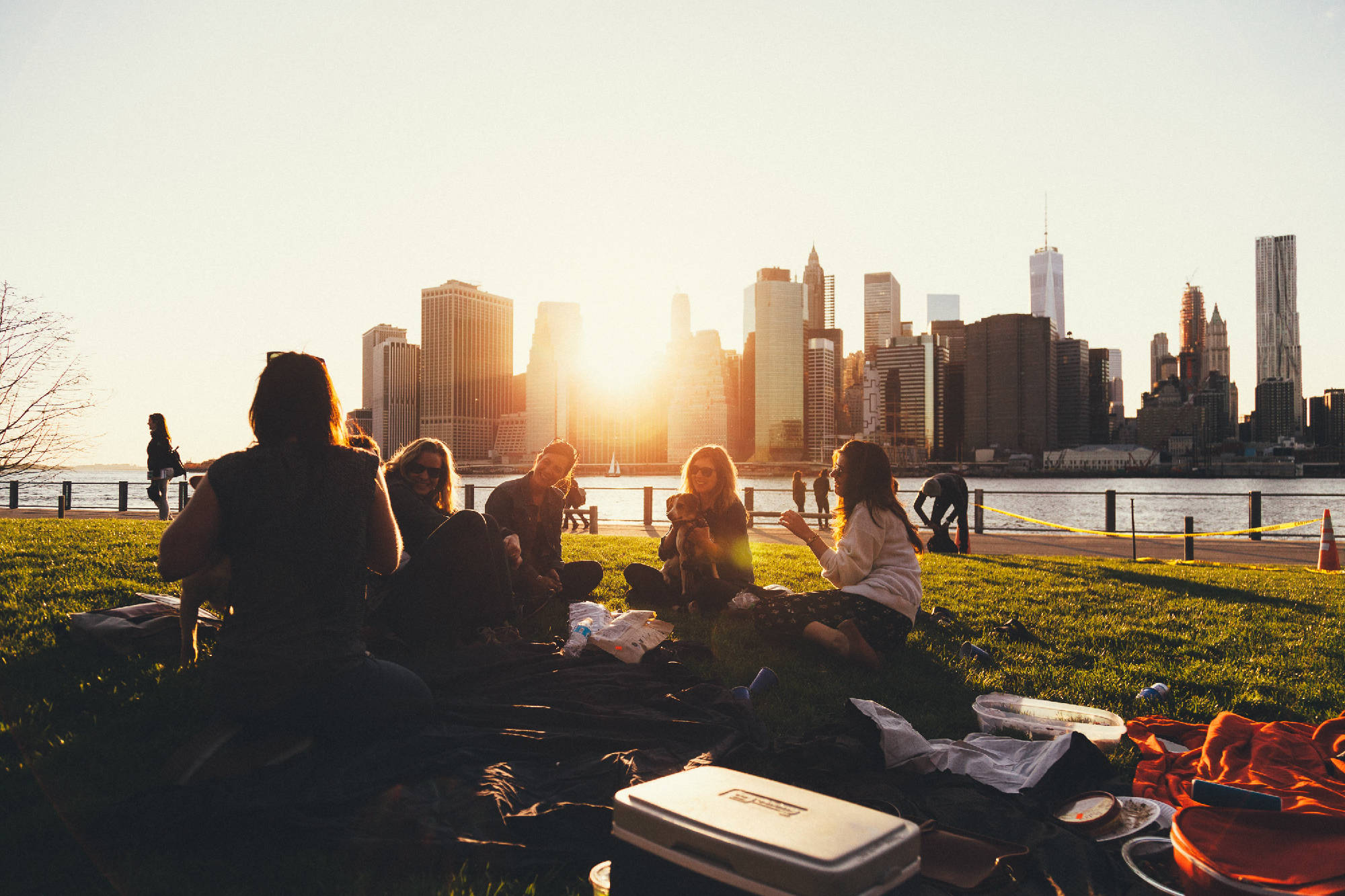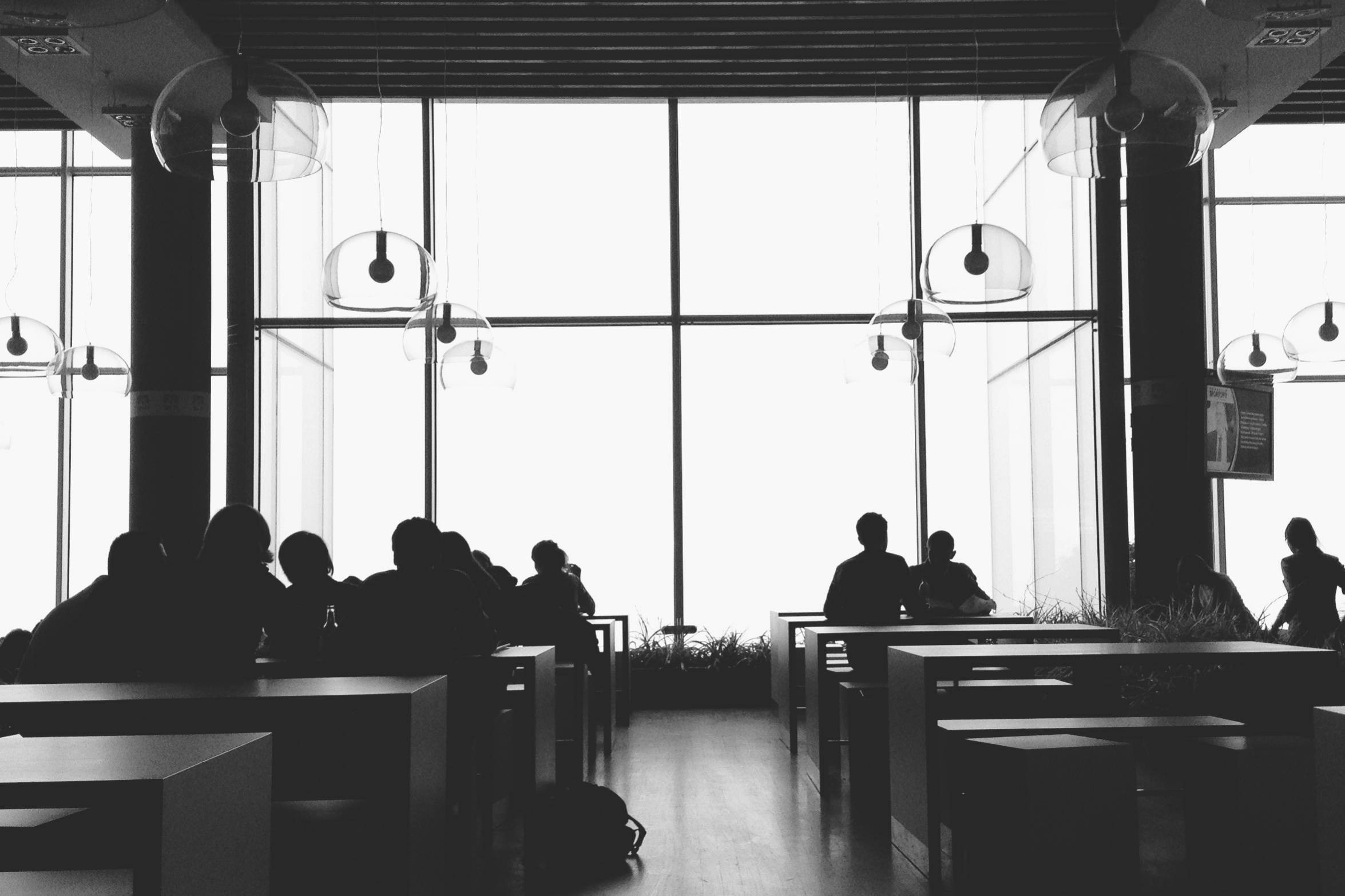
Lately I’ve been thinking a lot about how to create effective small-group learning experiences. I host a series of “Idea Exchange” dinners, which have been going quite well — but I want to explore other types of events as well: get-togethers, workshops, and other ways to bring together people for fun, exploration, and valuable learning.
Over the summer I was lucky to speak with BJ Fogg, who not only teaches in fascinating, innovative ways at Stanford University, but also enjoys taking his teaching outside inside formal classroom environments and directing cool learning experiences in other contexts.
Here are a few of the most useful things I learned from this conversation, followed by my takeaways — ideas for putting these lessons into action.
Assemble a great group of people — and then DO SOMETHING with the talent in the room.
Lesson: You’ve curated an interesting group of smart and curious people. You’ve brought them together, all in one place; you’ve even orchestrated some pretty good chemistry, a genial atmosphere, a bit of group cohesion. Job well done! But job far from finished. Once all the ingredients are in place, you have to figure out how to take advantage of this incredible human potential energy, and harness the power of the group to coalesce and do, make, or explore something interesting and meaningful.
Takeaway: For the dinner series I’ve been hosting, my focus has been on honing the format and having people bring interesting ideas to share. I think I’ve done a good job getting good people together and good conversation flowing, but I’d like to try creating events that are more centered around mutual exploration, whether investigating a question or problem, or perhaps collaboratively making something together in a fixed amount of time (like a design sprint). Something else to try: bringing together the inputs and insights of others more deliberately to help plan and orchestrate new events; I think the “assembly and activation of talent” idea is important not only in the context of each event as it happens, but also in the preparatory stages that lay the groundwork for what it becomes.
Provide structure — and let people fill it with something interesting.
Lesson: People want structure. People need structure. There’s a time and a place for freeform events, like happy hours and picnics in the park. But to get something meaningful happening, it’s important to provide structure — certain kinds of parameters which can serve as constraints for guiding creative action. This is helpful for all kinds of creative endeavors, but particularly useful in designing events and experiences.
Takeaway: I tend to run events with a kind of “happy medium” balance between structure and freeform. I’ll have a rough format in mind and move the conversation along within guidelines I’ve come to find work well. I‘m aware that having some structure is important, but I haven’t experimented with it as much as I know I could. There are some interesting structural constraints I’ve thought about but not yet actually tried to implement — like a micro-conference based on collectively watching and discussing a series of short videos, or a workshop designed to explore and inventory different modes of nonlinear storytelling.
Take it to the edge of what you know — and just beyond.
Lesson: It can be more fruitful to explore things you don’t know than exclusively those areas in which your expertise has blossomed. Try to base the learning experiences you design on genuine exploration. Students love participating in a real-time struggle to figure something out, together. When you’re participating in that struggle alongside them, rather than directing from an intellectual pulpit, the whole thing feels more authentic.
Takeaway: This is an important one! I feel like so far I haven’t yet challenged myself enough; I’ve created events around my own interests, but haven’t done much that’s made me uncomfortable or truly stretched my limits. Could I plan a large event — say, 50 people or more, at a venue other than my living room — that provides others with a meaningful learning experience? Could I put together something longer-format, something exploring in greater depth topics I don’t know well but would like to dive into? Can I relinquish just enough control while still being an effective facilitator? I aim to find out!
Group structure and dynamics can vary; plan for emergent opportunities and evolution.
Lesson: There’s no one perfect structure for putting together a group learning event. This of course depends a lot on context. But one thing you can do is always be on the lookout for emergent opportunities that you can use to your advantage. And one thing you can plan for is unpredictability. By allowing for continuous change and evolution, you can be more responsive to what works best and end up in unexpected but incredible places — places a rigid structure or syllabus might have precluded you from discovering.
Takeaway: This one feels like the vital counterpoint to the necessary constraints of structure. It’s a fine balance, planning well yet leaving space for the unknown and serendipitous — but I recognize that some of the best and most memorable experiences and results are unpredictable, and I’d like to be more conscious of designing events with this in mind. This could include allowing others more power in directing events as they unfold, and intentionally leaving certain parts of the goals and structure flexible. For example: if I direct an exploratory workshop, I can focus on asking interesting questions but not dictating where we end up. The Idea Exchange dinners may not have a ton of structural constraints, but they’re also somewhat of a “closed loop” in that they create a fantastic conversation for an evening, but don’t extend the ideas from that conversation to create either continuity or potential for extension — something else to work on!
Evaluate everything.
Lesson: Some learning experiences, especially those that are spontaneous and personal, can be just about the experience itself and can stay in the moment. But generally speaking, it’s a good idea to try to evaluate every learning experience you direct. After completing an event, try to get at the root of both what was particularly valuable about the experience, and how it could be improved. A couple great questions to ask each participant after an event include: “What surprised you?” and “What’s the most important thing you learned?”
Takeaway: I’ve done some evaluation for the Idea Exchange events — mainly in the form of follow-up emails asking people for feedback and suggestions, as well as a few conversation with friends — but this is something I can do more intentionally. And I can go deeper with trying to understand exactly what aspects are most effective and form the critical core of the events, as well as identify concrete areas for improvement. I think being more specific with this will also be helpful for propelling me in fruitful directions as I organize new events, too.
I’m excited to try out a few new approaches in light of the points above.
Would you like to attend events of the sort I’ve speculated about here? If you’re in NYC and want to participate in (or help organize!) interesting learning experiences, please get in touch.
Subscribe to the Self Starter’s Guide mailing list!

